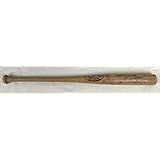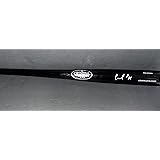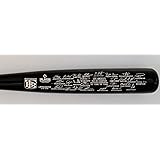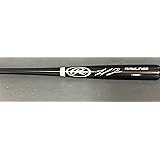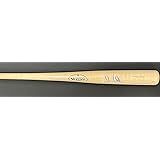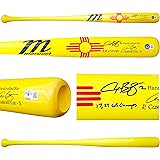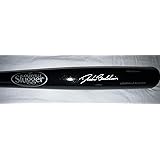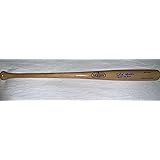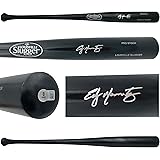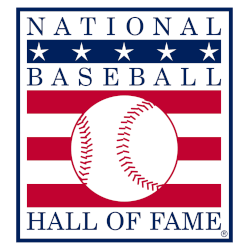

Search By First Name of the HOFers
Al Lopez
Inducted:
1977
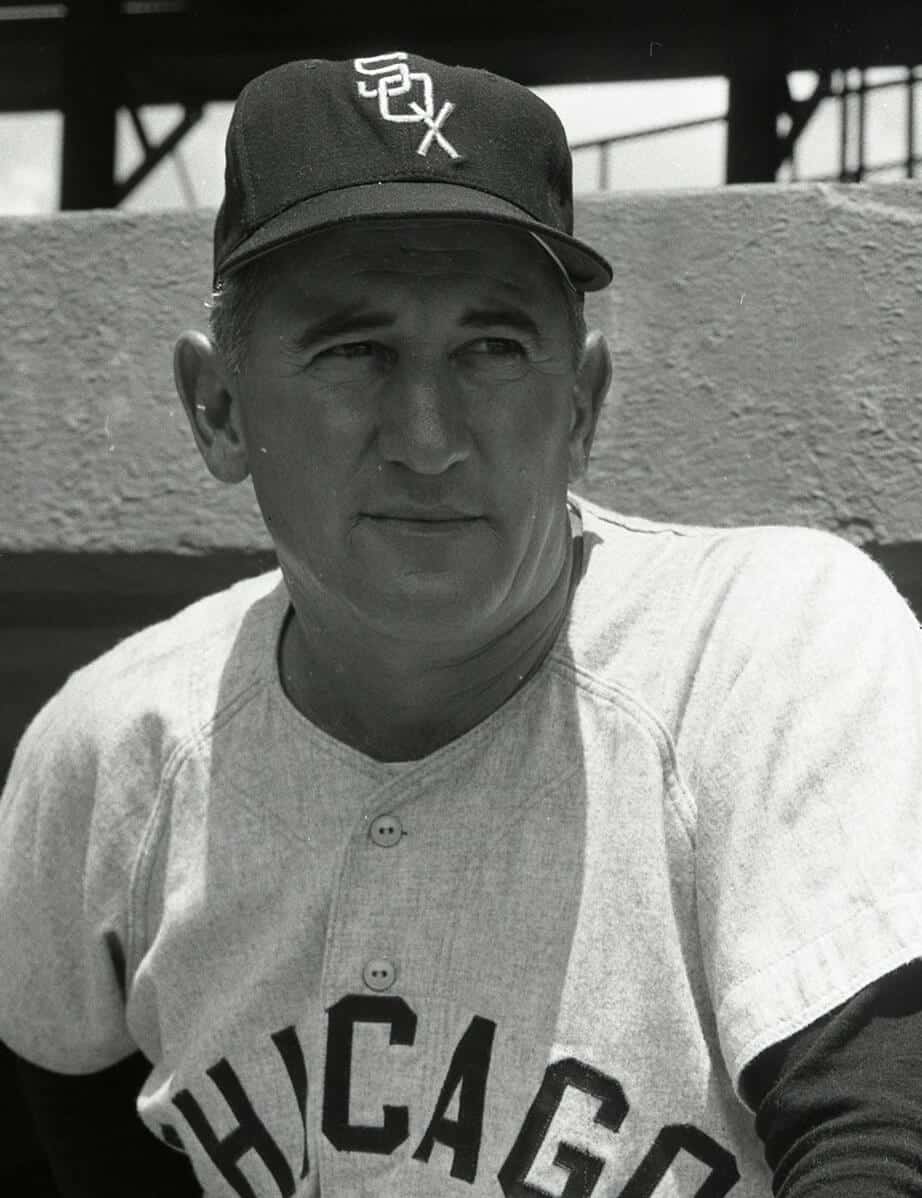
Player Details
5-11, 165lb (180cm, 74kg)
Born:
August 20, 1908
Tampa, Florida, U.S.
Died:
October 30, 2005
Tampa, Florida, U.S.
Position:
Catcher
Manager
College:
NA
Al Lopez enjoyed a remarkable career as both a durable catcher and a highly successful manager. Playing from 1928 to 1947, he became one of the most reliable backstops of his time, setting a then-record for most games caught in the major leagues. Lopez collected over 1,900 hits during his playing days with the Dodgers, Braves, and Pirates, while earning a reputation for defensive skill and leadership. Transitioning into management, he found even greater success.
Lopez guided the Cleveland Indians to the 1954 American League pennant with a then-record 111 wins and later led the Chicago White Sox to the 1959 pennant, breaking the Yankees’ long hold on the league. Known for steady leadership and consistent winning, he retired with a managerial record of 1,410–1,004, one of the best winning percentages in history.
Inducted into the Baseball Hall of Fame in 1977, Lopez is remembered as a model of consistency, sportsmanship, and long-lasting impact.
Lopez's Awards and Records:
- Baseball Hall of Fame induction: 1977
- American League pennant winner (1954, 1959)
- Held MLB record for most games caught (1,918) until broken by Bob Boone
- Only manager to consistently challenge Yankees dominance in the 1950s
Career Records:
- Managed teams to 14 consecutive winning seasons
- Guided 1954 Indians to a then-record 111 wins
- First Hispanic manager to win an American League pennant
Career Teams:
As player
Brooklyn Robins / Dodgers (1928, 1930–1935)
Boston Bees (1936–1940)
Pittsburgh Pirates (1940–1946)
Cleveland Indians (1947)
As manager
Cleveland Indians (1951–1956)
Chicago White Sox (1957–1965, 1968–1969)
Number Worn:
10,7, 8, 12
MLB Stats:
Playing Career-
Seasons:
19 (1928–1947)
Games:
1,950
Hits:
1,918
Home Runs:
51
Batting Average:
.261
Managerial Record-
Seasons:
17 (1951–1969)
Wins:
1,410
Losses:
1,004
Winning Percentage:
.584
Pennants:
2 (1954, 1959)
Al Simmons
Inducted:
1953
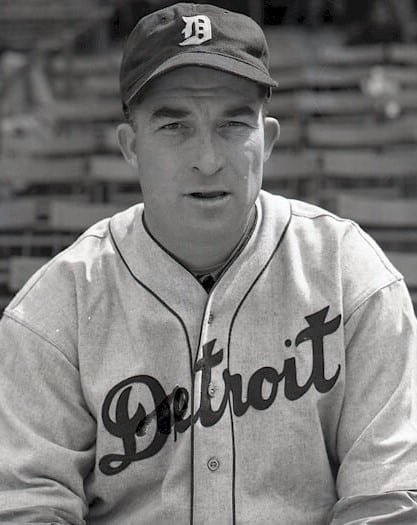
Player Details
Born:
May 22, 1902
Milwaukee, Wisconsin, U.S.
Died:
May 26, 1956
Milwaukee, Wisconsin, U.S.
Position:
Left fielder
College:
NA
Al Simmons was one of baseball’s most consistent and dynamic hitters during the 1920s and 1930s. Debuting with the Philadelphia Athletics in 1924, Simmons quickly became a centerpiece of Connie Mack’s powerhouse lineup.
Known for his unorthodox batting stance and quick wrists, Simmons hit .300 or better in 11 consecutive seasons. He helped lead the A’s to three straight pennants and two World Series titles (1929, 1930). In 1930, he batted .381 with 211 hits and 165 RBIs—arguably the best season of his career. Over 20 seasons, Simmons totaled 2,927 hits, 307 home runs, and a .334 lifetime batting average.
He was aggressive on the basepaths, fierce in competition, and respected across both leagues. Simmons retired as one of the top right-handed hitters of his era and was inducted into the Hall of Fame in 1953.
Simmons's Awards and Records
- 3× All-Star (1933–1935)
- 2× World Series champion (1929, 1930)
- 2× AL batting champion (1930, 1931)
- AL RBI leader (1929)
- Philadelphia Baseball Wall of Fame
- Athletics Hall of Fame
MLB Records
- Fastest player in MLB history to reach 1,500 hits
- One of only two players in MLB history to record 200+ hits in each of his first three full seasons
- One of the highest career batting averages among right-handed hitters in MLB history
- 11 consecutive seasons hitting .300 or better
- Topped 200 hits in a season six times
- Member of MLB’s All-Time Team (selected in 1969)
MLB Teams:
Philadelphia Athletics (1924–1932)
Chicago White Sox (1933–1935)
Detroit Tigers (1936)
Washington Senators (1937–1938)
Boston Bees (1939)
Cincinnati Reds (1939)
Philadelphia Athletics (1940–1941)
Boston Red Sox (1943)
Philadelphia Athletics (1944)
Number Worn:
7
MLB Stats
Seasons:
20 (1924–1944)
Games Played:
2,215
Hits:
2,927
Batting Average:
.334
Home Runs:
307
RBIs:
1,828
Runs Scored:
1,507
Stolen Bases:
88
Career OPS:
.915
Albert Spalding
Inducted:
1939

Personal Details
Born:
September 2, 1849
Byron, Illinois, U.S.
Died:
September 9, 1915
San Diego, California, U.S.
Position:
Executive/Pioneer contributors
College:
NA
Albert Spalding was a foundational figure in the early days of baseball, both on and off the field. As a pitcher, he dominated the National Association and National League during the 1870s, leading the league in wins every season from 1871 to 1876.
Known for his pinpoint control and remarkable stamina, Spalding posted a career record of 252–65 with a staggering .795 winning percentage, one of the highest in MLB history.
After retiring at just 27, he played an even bigger role in shaping the sport. He co-founded the A.G. Spalding sporting goods company, which became a key supplier of baseball equipment. He also helped globalize baseball, organizing the 1888–89 world tour that introduced the game to audiences abroad.
He was inducted into the Baseball Hall of Fame in 1939 as a pioneer of the game.
Spalding's Awards and Records
- Inducted into the Baseball Hall of Fame (1939)
- Led league in wins for six consecutive seasons (1871–1876)
- Helped found the National League in 1876
- Organized the 1888–89 global baseball tour
- Co-founder of Spalding Sporting Goods, official MLB supplier
- Advocate for standardizing baseball rules and equipment
MLB Records
- 4× NA pennant (1872–1875)
- NL pennant (1876)
- 6× Wins leader (1871–1876)
- Chicago Cubs Hall of Fame
- Career pitching record: 252 wins, 65 losses
- First pitcher to win 40+ games in four straight seasons
MLB Teams:
As Player
Boston Red Stockings (1871–1875)
Chicago White Stockings (1876–1878)
As Manager
Chicago White Stockings (1876–1877)
MLB Stats
Games Pitched
347
Games Started
325
Wins
252
Losses
65
Shutouts
6
Saves
13
Earned Run Average (ERA)
2.13
Strikeouts
248
At Bats
1,237
Hits
388
Batting Average
.313
Runs Scored
220
Runs Batted In (RBI)
338
On-Base Percentage (OBP)
.313
Albert Spalding
Inducted:
1939

Personal Details
Born:
September 2, 1849
Byron, Illinois, U.S.
Died:
September 9, 1915
San Diego, California, U.S.
Position:
Executive/Pioneer contributors
College:
NA
Albert Spalding was a foundational figure in the early days of baseball, both on and off the field. As a pitcher, he dominated the National Association and National League during the 1870s, leading the league in wins every season from 1871 to 1876.
Known for his pinpoint control and remarkable stamina, Spalding posted a career record of 252–65 with a staggering .795 winning percentage, one of the highest in MLB history.
After retiring at just 27, he played an even bigger role in shaping the sport. He co-founded the A.G. Spalding sporting goods company, which became a key supplier of baseball equipment. He also helped globalize baseball, organizing the 1888–89 world tour that introduced the game to audiences abroad.
He was inducted into the Baseball Hall of Fame in 1939 as a pioneer of the game.
Spalding's Awards and Records
- Inducted into the Baseball Hall of Fame (1939)
- Led league in wins for six consecutive seasons (1871–1876)
- Helped found the National League in 1876
- Organized the 1888–89 global baseball tour
- Co-founder of Spalding Sporting Goods, official MLB supplier
- Advocate for standardizing baseball rules and equipment
MLB Records
- 4× NA pennant (1872–1875)
- NL pennant (1876)
- 6× Wins leader (1871–1876)
- Chicago Cubs Hall of Fame
- Career pitching record: 252 wins, 65 losses
- First pitcher to win 40+ games in four straight seasons
MLB Teams:
As Player
Boston Red Stockings (1871–1875)
Chicago White Stockings (1876–1878)
As Manager
Chicago White Stockings (1876–1877)
MLB Stats
Games Pitched
347
Games Started
325
Wins
252
Losses
65
Shutouts
6
Saves
13
Earned Run Average (ERA)
2.13
Strikeouts
248
At Bats
1,237
Hits
388
Batting Average
.313
Runs Scored
220
Runs Batted In (RBI)
338
On-Base Percentage (OBP)
.313
Alexander Cartwright
Inducted:
1938
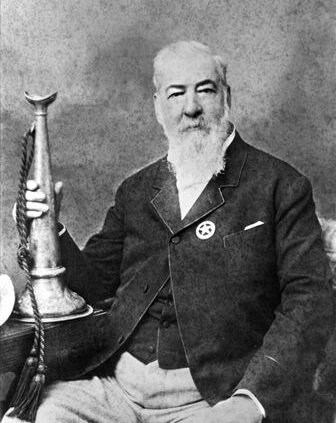
Player Stats
Born:
Alexander Joy Cartwright Jr.
April 17, 1820
New York City, U.S.
Died:
July 12, 1892
Honolulu, O'ahu, Kingdom of Hawai'i
Position:
Pioneer contributors
Alexander Cartwright is widely recognized as one of the founding figures of modern baseball. A New York City bookseller and volunteer firefighter, Cartwright helped formalize the rules that transitioned baseball from a playground pastime into a structured, competitive sport. In 1845, he organized the Knickerbocker Base Ball Club and authored a set of rules that established bases set 90 feet apart, nine-player teams, and three outs per inning—core principles still used today.
Cartwright also introduced the idea of tagging runners out and eliminated practices like “soaking” (throwing the ball at runners). In 1849, he moved west during the Gold Rush and is credited with spreading the game across the country, including to Hawaii, where he helped establish local teams.
Though others contributed to baseball’s evolution, Cartwright’s role in standardizing the game earned him a rightful place in Cooperstown. He was inducted into the Baseball Hall of Fame in 1938 as a pioneer of the sport.
Cartwright's Awards and Records
- Credited with formalizing the first modern baseball rules (1845)
- Founder of the Knickerbocker Base Ball Club
- Introduced 90-foot base paths, 9-player teams, and innings-based outs
- Helped spread baseball westward during the Gold Rush
- Inducted into the Baseball Hall of Fame in 1938 (Pioneer Category)
- Honored as one of the "Fathers of Baseball"
Team Served as secretary:
Knickerbocker Base Ball Club (1846)
Member of:
Knicks club’s rules committee (1848)
Advisor :
King David Kalākaua, Queen Emma
Amos Rusie
Inducted:
1977

Player Details
6-1, 200lb (185cm, 90kg)
Born:
May 30, 1871
Mooresville, Indiana, U.S.
Died:
December 6, 1942
Seattle, Washington, U.S.
Position:
Pitcher
College:
NA
Amos Rusie, known as the "Hoosier Thunderbolt," was one of baseball’s most dominant pitchers of the 1890s. Pitching primarily for the New York Giants, Rusie’s blazing fastball and overpowering presence made him both feared and admired in his era. He led the National League in strikeouts five times and in wins twice, finishing his career with 246 victories and 1,934 strikeouts.
Rusie’s wildness was equally legendary—he led the league in walks five times—but his overpowering stuff forced hitters back from the plate, ultimately influencing the rule change that moved the pitching distance from 50 feet to 60 feet, 6 inches in 1893. Despite an arm injury that curtailed his career, Rusie’s peak dominance left an indelible mark on the game.
Inducted into the Hall of Fame in 1977, he is remembered as one of the most intimidating pitchers of 19th-century baseball, a fireballer who reshaped how the sport was played.
Rusie's Awards and Records:
- 2× National League Wins Leader (1890, 1891)
- 5× National League Strikeout Leader (1889, 1890, 1891, 1893, 1894)
- 2× National League ERA Leader (1894, 1897)
- Helped prompt pitching distance change (1893)
- Pitched a no-hitter on July 31, 1891
MLB Records:
- Won 30+ games in four seasons
- Influenced one of the most significant rule changes in MLB history
- Nicknamed “Hoosier Thunderbolt” for his overpowering fastball
- One of the 19th century’s most feared pitchers
Career Teams:
Indianapolis Hoosiers (1889)
New York Giants (1890–1898)
Cincinnati Reds (1901)
MLB Stats:
Playing Career-
Seasons:
10 (1889–1901)
Wins–Losses:
245–174
ERA:
3.07
Strikeouts:
1,934
Complete Games:
336
Shutouts:
30
Innings Pitched:
3,778
Babe Ruth
Inducted:
1936
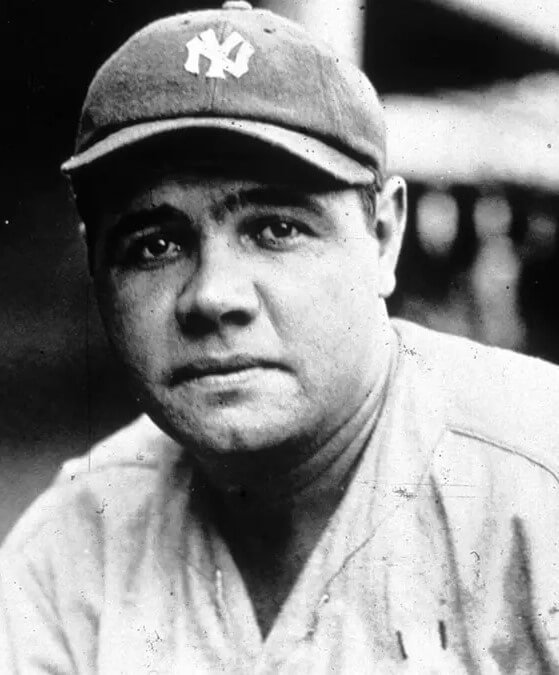
Player Stats
Born:
February 6, 1895
Baltimore, Maryland, U.S.
Died:
August 16, 1948
New York City, U.S.
Position:
Right fielder and Pitcher
Babe Ruth is one of the most legendary figures in baseball history. Beginning his career as a dominant left-handed pitcher for the Boston Red Sox, Ruth revolutionized the game when he transitioned to a full-time hitter with the New York Yankees.
His power-hitting changed baseball forever, making the home run a key part of the sport. Over his 22-year career (1914–1935), Ruth smashed 714 home runs, a record that stood for nearly 40 years, and posted an astonishing .690 career slugging percentage, still the highest in MLB history.
Ruth won seven World Series titles and was a two-time All-Star. He led the league in home runs 12 times and remains one of the most celebrated athletes in American sports history.
Inducted into the Hall of Fame in 1936 as one of its first five members, Ruth’s impact on baseball and popular culture remains unmatched.
Ruth's Awards and Records
- 2× All-Star (1933, 1934)
- 7× World Series champion (1915, 1916, 1918, 1923, 1927, 1928, 1932)
- AL MVP (1923)
- AL batting champion (1924)
- 12× AL home run leader (1918–1921, 1923, 1924, 1926–1931)
- 5× AL RBI leader (1919–1921, 1923, 1926)
- AL ERA leader (1916)
- Pitched a combined no-hitter on June 23, 1917
- New York Yankees No. 3 retired
- Monument Park honoree
- Boston Red Sox Hall of Fame
- Major League Baseball All-Century Team
- Major League Baseball All-Time Team
- Other career achievements and records
MLB Teams
Boston Red Sox (1914–1919)
New York Yankees (1920–1934)
Boston Braves (1935)
Number Worn:
3
MLB Stats
Seasons:
22
Games Played:
2,503
Earned Run Average (ERA):
2.28
Strikeouts:
488
Batting Average:
.342
Hits:
2873
Home Runs:
714
Runs Scored:
2,174
RBIs:
2,214
Slugging Percentage:
.690
Ban Johnson
Inducted:
1937
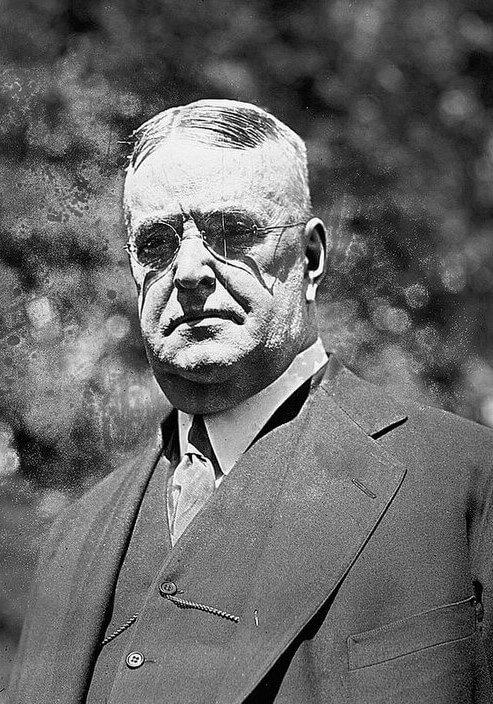
Personal Details
Born:
January 5, 1864
Norwalk, Ohio, U.S.
Died:
March 28, 1931 (aged 67)
St. Louis, Missouri, U.S.
Position:
Executive (American League president)
Ban Johnson was a visionary baseball executive who played a crucial role in shaping Major League Baseball. As the founder and first president of the American League (AL) in 1901, he transformed it from a minor league into a major league, challenging the established National League (NL) and leading to the formation of modern MLB.
His leadership helped introduce stability, fair play, and credibility to professional baseball.
Under Johnson’s guidance, the AL gained respect by promoting cleaner, more disciplined play, enforcing strict rules against rowdy behavior that plagued early baseball. His efforts led to the 1903 National Agreement, which established the framework for the World Series and ensured cooperation between the AL and NL.
For his contributions, he was inducted into the Baseball Hall of Fame in 1937.
Johnson's Awards and Records
- Founder & First President of the American League (1901–1927)
- Key architect of the National Agreement (1903), leading to the first World Series
- Transformed the AL into a major league, securing its place in MLB
- Baseball Hall of Fame Inductee (1937, Pioneer Category)
AL Career:
President Western League
(1894-1899)
President American League
(1900-1927)
Bill Dickey
Inducted:
1954

Player Details
Born:
June 6, 1907
Bastrop, Louisiana, U.S.
Died:
November 12, 1993
Little Rock, Arkansas, U.S.
Position:
Catcher
Manager
College:
Little Rock College
Bill Dickey was one of the greatest catchers in baseball history and a key part of the New York Yankees dynasty of the 1930s and 1940s. A smooth left-handed hitter and rock-solid defender, Dickey played his entire 17-year career with the Yankees.
He was a model of consistency, batting over .300 in eight seasons and driving in 100 or more runs four times. Behind the plate, he commanded respect with his leadership and strong throwing arm, guiding a pitching staff that included legends like Lefty Gomez and Red Ruffing. Dickey helped the Yankees win eight World Series titles and later served as a mentor to Yogi Berra, helping shape the next generation of catching excellence.
He missed two years due to military service during World War II but returned to contribute both as a player and a coach. Dickey was elected to the Hall of Fame in 1954.
Dickey's Awards and Records
- 11× All-Star (1933, 1934, 1936–1943, 1946)
- 7× World Series champion (1932, 1936–1939, 1941, 1943)
- New York Yankees No. 8 retired
- Monument Park honoree
MLB Records
- Most World Series titles by a catcher (8)
- First catcher in MLB history with four 100-RBI seasons
- .313 career batting average – among the highest for a catcher
- Catcher for the first official MLB All-Star Game (1933)
- 13 consecutive seasons catching 100+ games (1930–1942)
MLB Teams:
As Player
New York Yankees (1928–1943, 1946)
As manager
New York Yankees (1946)
Number Worn:
8
MLB Stats
Seasons:
17 (1928–1946)
Games Played:
1,789
Hits:
1,969
Batting Average:
.313
Home Runs:
202
RBIs:
1,209
Runs Scored:
930
On-Base Percentage:
.382
Slugging Percentage:
.486
OPS:
.868
Bill Klem
Inducted:
1953
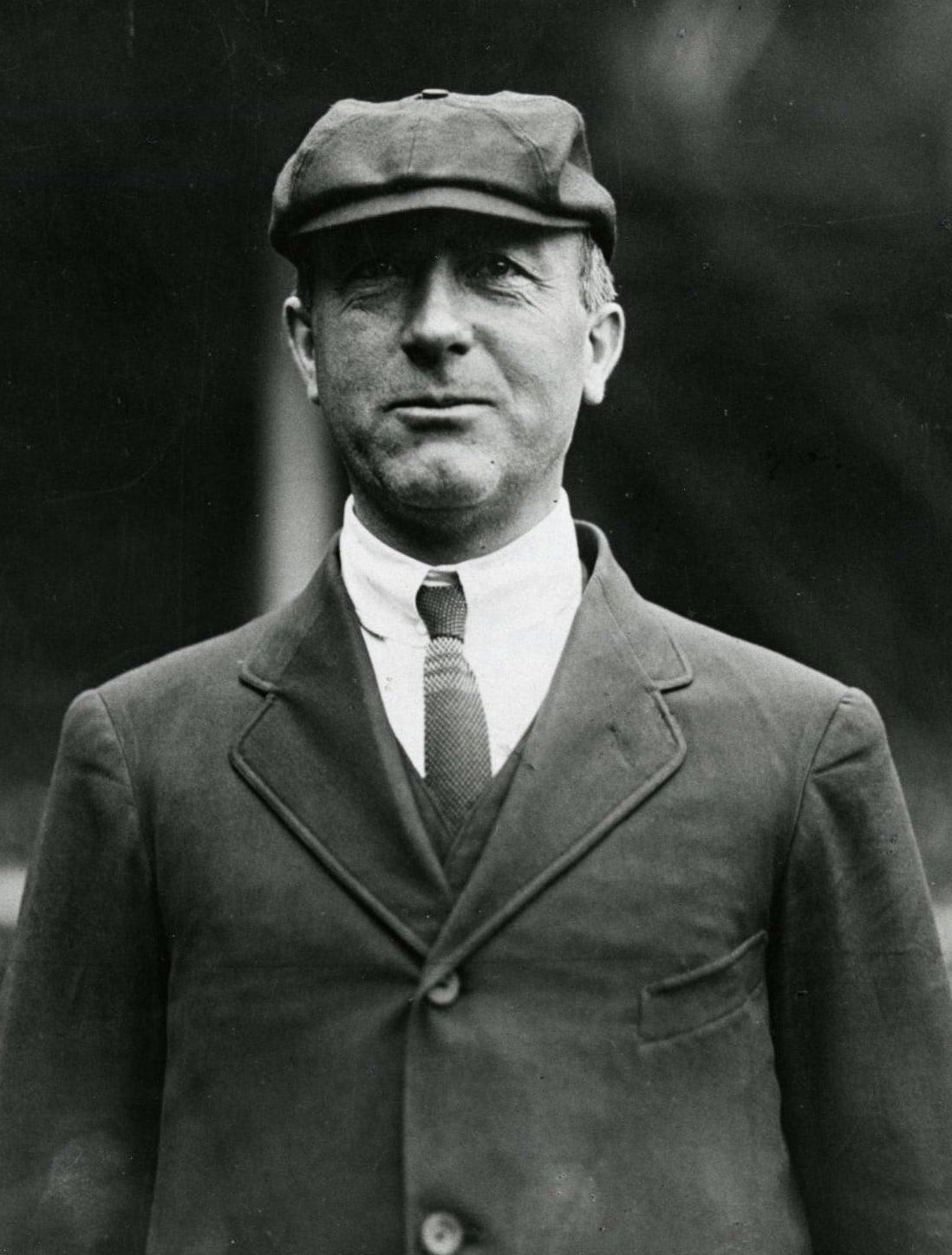
Player Details
Born:
February 22, 1874
Rochester, New York, U.S.
Died:
September 16, 1951
Miami, Florida, U.S.
Position:
Umpire
College:
NA
Bill Klem is widely considered the father of modern umpiring. Serving as a National League umpire from 1905 to 1941, Klem brought professionalism, authority, and innovation to the role. He was the first to use hand signals for balls and strikes, setting a new standard in communication and consistency.
Known for his booming voice, fierce command of the game, and commitment to integrity, Klem umpired 18 World Series—more than any other umpire in history. His 5,375 career games umpired remains one of the highest totals ever. Klem demanded respect on the field and viewed umpiring as a sacred responsibility, famously stating, “It ain't nothing till I call it.”
He fiercely defended the dignity of the profession and was instrumental in elevating the public perception of umpires. His legacy lives on through every official who follows in his footsteps. Klem was elected to the Hall of Fame in 1953, becoming the first umpire ever inducted.
Klem's Awards and Records
- First umpire inducted into the National Baseball Hall of Fame (1953)
- Most World Series umpired in MLB history (18)
- One of the longest careers by any MLB umpire (37 seasons)
- Introduced hand signals to umpiring
- Nicknamed “The Old Arbitrator” for his authoritative style
- Umpired MLB’s first All-Star Game in 1933
- Member of the MLB All-Century Team (umpire category)
Years active:
National League (1905–1941)
Career Stats
Games Umpired:
5,375
World Series Umpired:
18
All-Star Games Umpired:
2 (1933, 1938)
Ejections:
251
Bill McKechnie
Inducted:
1962
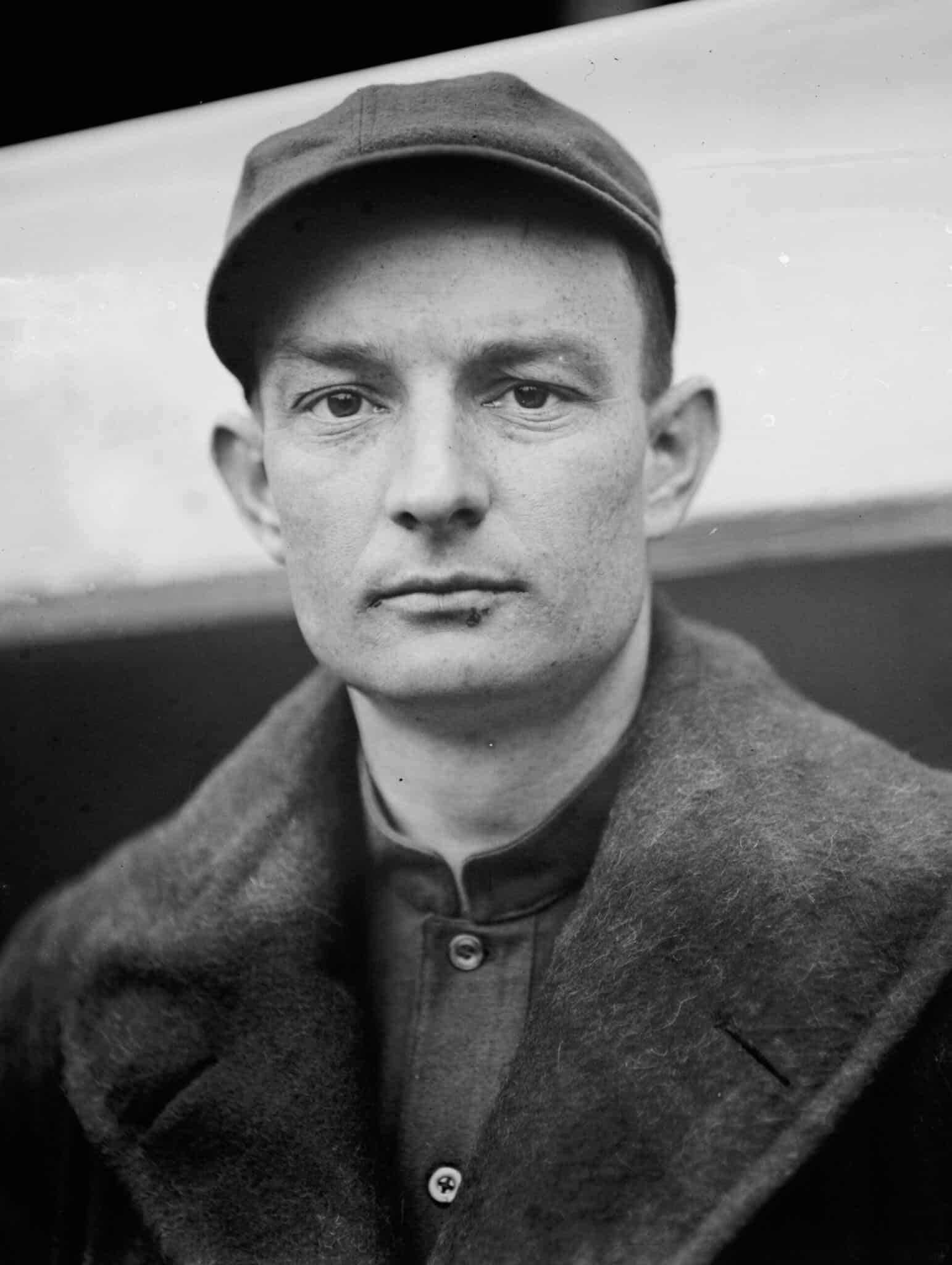
Player Details
5-10, 160lb (178cm, 72kg)
Born:
August 7, 1886
Wilkinsburg, Pennsylvania, U.S.
Died:
October 29, 1965
Bradenton, Florida, U.S.
Position:
Third baseman
Manager
College:
NA
Bill McKechnie was one of baseball’s most respected and successful managers, known for his calm leadership and ability to unify teams. Nicknamed “Deacon” for his steady demeanor, McKechnie led three different franchises to pennants and won two World Series titles — one with the Pittsburgh Pirates (1925) and another with the Cincinnati Reds (1940).
He was the first manager in MLB history to win a pennant with three different teams (Pirates, Cardinals, Reds), and finished his career with 1,896 wins over 25 seasons. McKechnie emphasized fundamentals, defense, and discipline, earning the trust of his players without ever needing to raise his voice.
He was inducted into the Baseball Hall of Fame in 1962, recognized not for fiery tactics but for building teams that played smart, winning baseball.
McKechnie's Awards and Records
- 3× World Series champion (1925, 1940, 1948)
- Cincinnati Reds Hall of Fame
- McKechnie Field in Bradenton, Florida named in his honor
- Known for quiet discipline, strategy, and team unity
- Built championship teams through consistency, defense, and respect
MLB Records
- First manager in MLB history to win pennants with three different teams
- 1,896 career wins – ranked 4th all-time at the time of his retirement
- Two-time World Series Champion – 1925 (Pirates), 1940 (Reds)
MLB Teams:
As Manager
Pittsburgh Pirates (1922–1926)
St. Louis Cardinals (1928–1929)
Boston Braves/Bees (1930–1937)
Cincinnati Reds (1938–1946)
MLB Stats
Seasons Managed:
25 (1915–1946)
Games managed:
3,647
Career Record:
1,896–1,723
Winning (%):
.524
World Series Titles:
2 (1925 – Pirates, 1940 – Reds)
Pennants:
4
Bill Terry
Inducted:
1954

Player Details
6-1, 200lb (185cm, 90kg)
Born:
October 30, 1898
Atlanta, Georgia, U.S.
Died:
January 9, 1989
Jacksonville, Florida, U.S.
Position:
First baseman
College:
NA
Bill Terry was a smooth-swinging first baseman and the last National League player to hit over .400 in a season. Playing his entire MLB career with the New York Giants, Terry was a consistent offensive force during the late 1920s and early 1930s. In 1930, he batted .401, a mark that still stands unmatched in NL history. A career .341 hitter, Terry recorded six 100-RBI seasons and led the league in hits and average during his peak.
Known for his balanced hitting and reliable glove, he was a 3-time All-Star and transitioned seamlessly into managing the Giants after his playing days. As a manager, he guided New York to a World Series title in 1933. Terry was elected to the Hall of Fame in 1954, recognized as one of the best hitters and most respected player-managers of his era.
Terry's Awards and Records
- 3× All-Star (1933–1935)
- World Series champion (1933)
- NL batting champion (1930)
- San Francisco Giants No. 3 retired
MLB Records
- Last National League player to hit .400 in a season
- Only NL first baseman with a .400 season
- Led NL in hits twice
- Six 100-RBI seasons
- Player-manager to win the World Series (1933)
- Managed the Giants for nine seasons (1932–1941)
MLB Teams:
As player
New York Giants (1923–1936)
As manager
New York Giants (1932–1941)
Number Worn:
3
Career Stats
Seasons:
14 (1923–1936)
Games Played:
1,721
Hits:
2,193
Batting Average:
.341
Home Runs:
154
RBI:
1,078
Runs:
1,120
On-Base Percentage:
.393
Slugging Percentage:
.506
Managerial record:
823–661
Winning (%):
.555
Billy Evans
Inducted:
1973
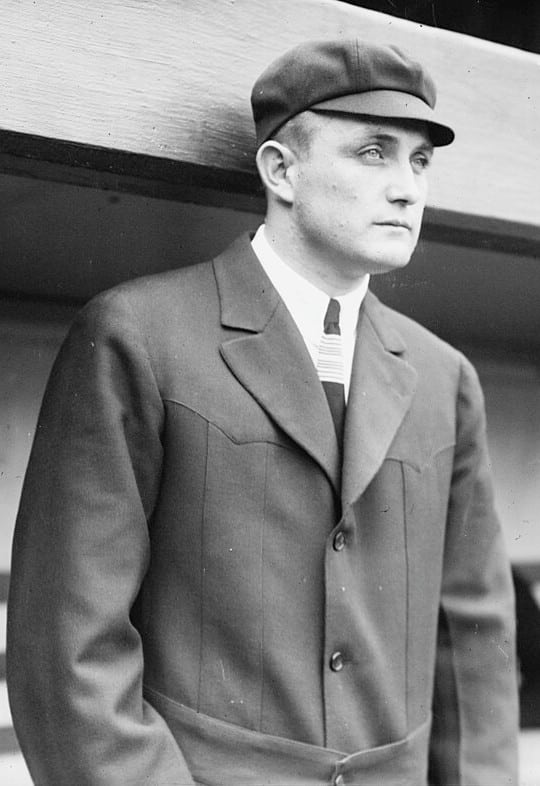
Player Details
5-11, 205lb (180cm, 92kg)
Born:
February 10, 1884
Chicago, Illinois, U.S.
Died:
January 23, 1956
Miami, Florida, U.S.
Position:
Umpire
College:
Cornell University
Billy Evans was one of the most respected umpires and baseball executives in the early 20th century. Born in 1884, he made his mark as a Major League umpire in the American League from 1906 to 1927. Known for his keen judgment, fairness, and ability to maintain control of the game, Evans became one of the most trusted officials of his era. Beyond umpiring, he contributed significantly to baseball administration, helping improve league rules and player relations.
Evans’ career included officiating in multiple World Series and All-Star Games, earning him widespread recognition for his professionalism. In 1953, he was inducted into the Baseball Hall of Fame, becoming one of the few umpires to receive this honor. His impact extended beyond the field as he helped shape the development of baseball standards and practices. Evans’ dedication to the sport left a lasting legacy as both an official and an innovator.
Evans's Award and Record:
- 2× World Series champion (1921, 1922)
- Consistent top hitter in National League
- Posthumous Baseball Hall of Fame Inductee (1972)
Notable Achievements:
- Career cut short by illness at age 30
- Key contributor to Giants’ dominance in the 1920s
- Renowned for contact hitting, speed, and defensive skill
Career:
Baseball umpire (1906–1927)
MLB Stats:
MLB Seasons:
22 (1906–1927)
Games Umpired:
3,319
World Series Officiated:
6
All-Star Games Officiated:
1
Billy Hamilton
Inducted:
1961

Player Details
5-6, 165lb (168cm, 74kg)
Born:
February 16, 1866
Newark, New Jersey, U.S.
Died:
December 15, 1940
Worcester, Massachusetts, U.S.
Position:
Outfielder
College:
NA
Billy Hamilton, nicknamed "Sliding Billy," was one of the fastest and most prolific base runners in baseball history. Playing from 1888 to 1901, Hamilton starred for the Kansas City Cowboys, Philadelphia Phillies, and Boston Beaneaters. He led the league in stolen bases five times and finished his career with 914 steals — still one of the highest totals in MLB history.
Equally dangerous at the plate, Hamilton batted over .300 in 12 of his 14 seasons and posted a career on-base percentage of .455, ranking among the best all time. His 1,697 career runs scored stood as the MLB record until the late 20th century. Incredibly, he scored more runs than games played — a rare and elite distinction.
Inducted into the Hall of Fame in 1961, Hamilton remains a symbol of speed, smarts, and relentless pressure on defenses during baseball’s early years.
Hamilton's Awards and Records
- 2× NL batting champion (1891, 1893)
- 5× NL stolen base leader (1889–1891, 1894, 1895)
- MLB record 198 runs, single season
- Philadelphia Phillies jersey retired
- Philadelphia Phillies Wall of Fame
MLB Records
- Scored more runs (1,697) than games played (1,594)
- Ranks 1st in career runs per game – 1.06, the highest in MLB history
- Stole 914 career bases – ranked 3rd all-time behind Rickey Henderson and Lou Brock
- .455 career on-base percentage – still top 10 in MLB history
- Stole 7 bases in a single game (August 31, 1894) – tied for most in MLB history
- Led the National League in stolen bases five times (1890–1891, 1893–1894, 1898)
MLB Teams:
Kansas City Cowboys (1888–1889)
Philadelphia Phillies (1890–1895)
Boston Beaneaters (1896–1901)
MLB Stats
Seasons:
14 (1888–1901)
Games Played:
1,594
Hits:
2,164
Batting Average:
.344
On-Base Percentage:
.455
Home Runs:
40
RBIs:
742
Runs Scored:
1,697
Stolen Bases:
914
Billy Herman
Inducted:
1975
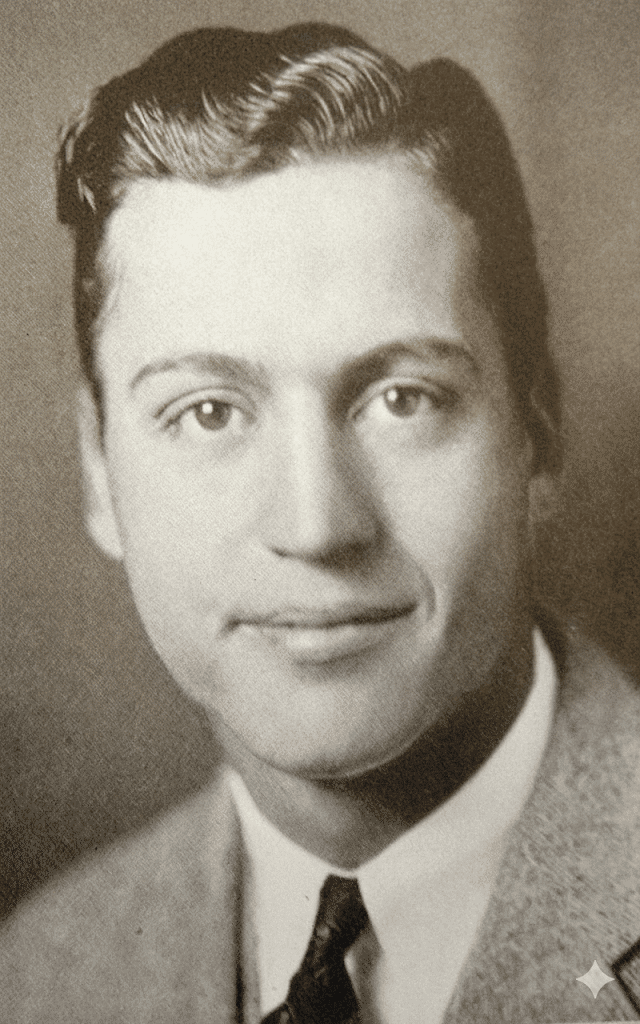
Player Details
5-11, 180lb (180cm, 81kg)
Born:
July 7, 1909
New Albany, Indiana, U.S.
Died:
September 5, 1992
West Palm Beach, Florida, U.S.
Position:
Second baseman
Manager
College:
New Albany HS (New Albany, IN)
Billy Herman, born July 7, 1909, in New Albany, Indiana, was one of the finest second basemen of his generation. Known for his consistency at the plate and steady defense, Herman played 15 Major League seasons from 1931 to 1947, most notably with the Chicago Cubs. A natural contact hitter, he recorded a career .304 batting average with over 2,300 hits and was selected to 10 All-Star Games.
Herman played in four World Series during his career, bringing reliability and leadership to every club he joined, including the Cubs, Brooklyn Dodgers, Boston Braves, and Pittsburgh Pirates. Beyond his playing career, Herman also served as a manager and coach, further influencing the game. His combination of offensive production, defensive skill, and team-first mentality made him one of the premier infielders of the 1930s and 1940s.
Inducted into the National Baseball Hall of Fame in 1975, Herman’s legacy is that of a complete second baseman and respected baseball figure.
Herman's Awards and Records:
- 10× All-Star (1934–1943)
- Chicago Cubs Hall of Fame
- 4× World Series appearances (1932, 1935, 1938, 1941)
MLB Records:
- Career .304 batting average across 15 years
- Recorded over 200 hits in three separate seasons
- Consistently ranked among top defensive second basemen of his era
- One of the most reliable contact hitters and infield leaders of the 1930s–40s
MLB Teams:
As player
Chicago Cubs (1931–1941)
Brooklyn Dodgers (1941–1943, 1946)
Boston Braves (1946)
Pittsburgh Pirates (1947)
As manager
Pittsburgh Pirates (1947)
Boston Red Sox (1964–1966)
Number Worn:
2
MLB Stats:
Season Played:
1931–1947
Games Played:
1,922
Hits:
2,345
Batting Average:
.304
Home Runs:
47
RBIs:
839
Runs:
1,163
Doubles:
486
Triples:
82
Managerial record:
189–274
Winning %:
.408
Sports Fan Products
MLB Hall of Fame
The MLB Hall of Fame is a revered institution dedicated to honoring the greatest contributions to baseball. Located in Cooperstown, New York, it serves as a shrine to the game's rich history and the legendary players who have left an indelible mark on the field. Each year, the Hall of Fame holds an induction ceremony that celebrates the newest members of its prestigious ranks, commonly referred to as the Hall of Fame class.
These ceremonies are significant events in the baseball calendar, drawing fans, players, and media worldwide to witness the acknowledgment of baseball's finest. The inductees are celebrated for their remarkable career achievements, which include outstanding statistics, memorable performances, and contributions that have shaped the game. The Hall recognizes players, managers, umpires, and contributors who have significantly impacted the sport.
Among the many iconic moments celebrated within the Hall are record-breaking home runs, historic games, and unforgettable plays that have become a part of baseball lore. Each inductee's journey to the Hall is a testament to their skill, perseverance, and dedication to the sport. The Hall of Fame also outlines the eligibility criteria, ensuring a fair and transparent selection process.
Visitors to the Hall can explore exhibits featuring historical contributions from various eras of baseball, showcasing memorabilia, photographs, and artifacts that tell the game's story. From famous inductees like Babe Ruth and Jackie Robinson to the more recent stars, the Hall preserves the legacy of these athletes, allowing future generations to appreciate their greatness.
In addition to the exhibits, the Hall of Fame hosts numerous events throughout the year, including educational programs and community outreach initiatives, to foster a love for baseball among young fans. The memorable speeches during induction ceremonies often reflect on the inductees' journeys, the challenges they faced, and their impact on their teams and the sport.
Ultimately, the MLB Hall of Fame celebrates excellence in baseball, a place where the past is remembered and the future is inspired. It is a vital part of baseball culture, ensuring that the stories of its greatest players are never forgotten and continue to resonate with fans worldwide.




